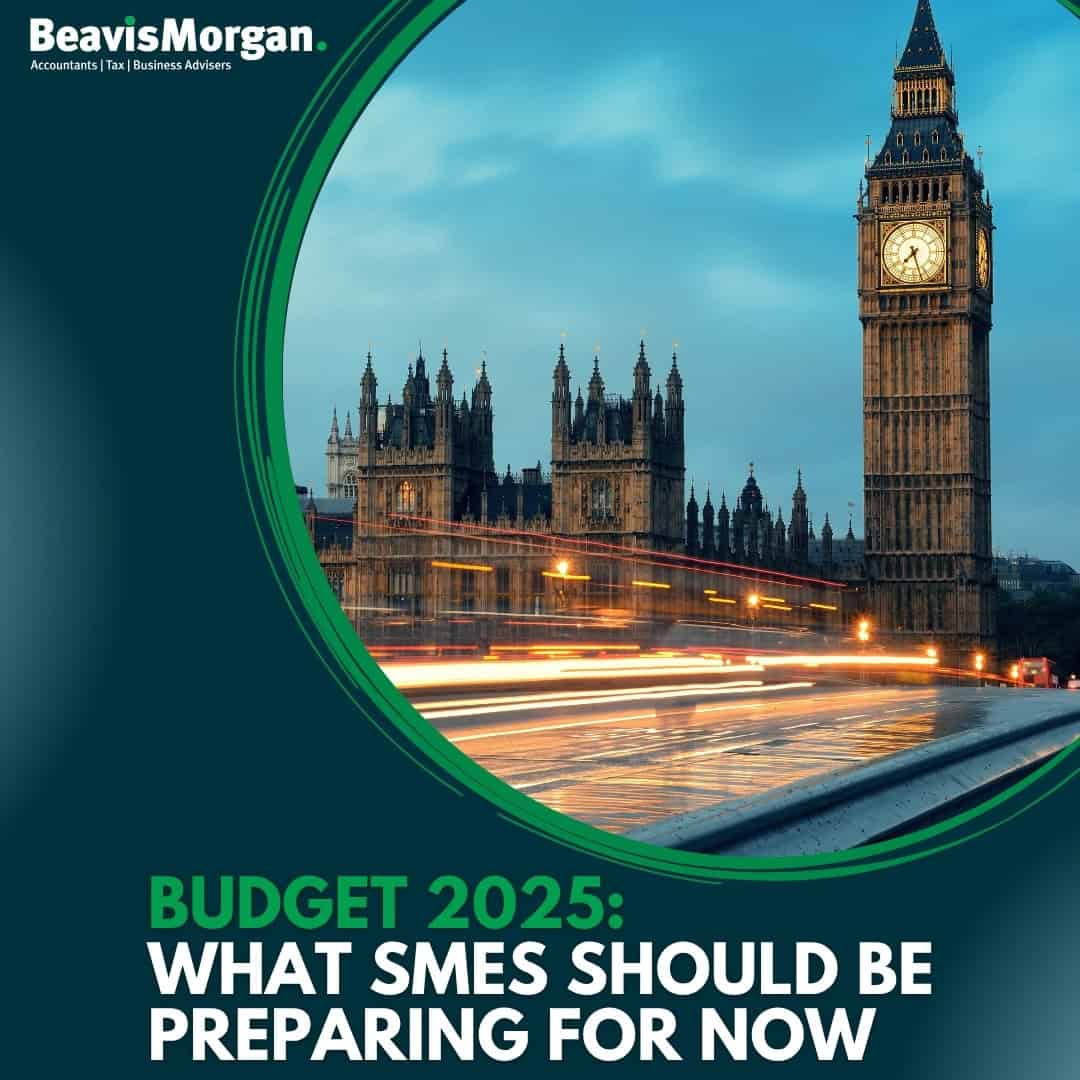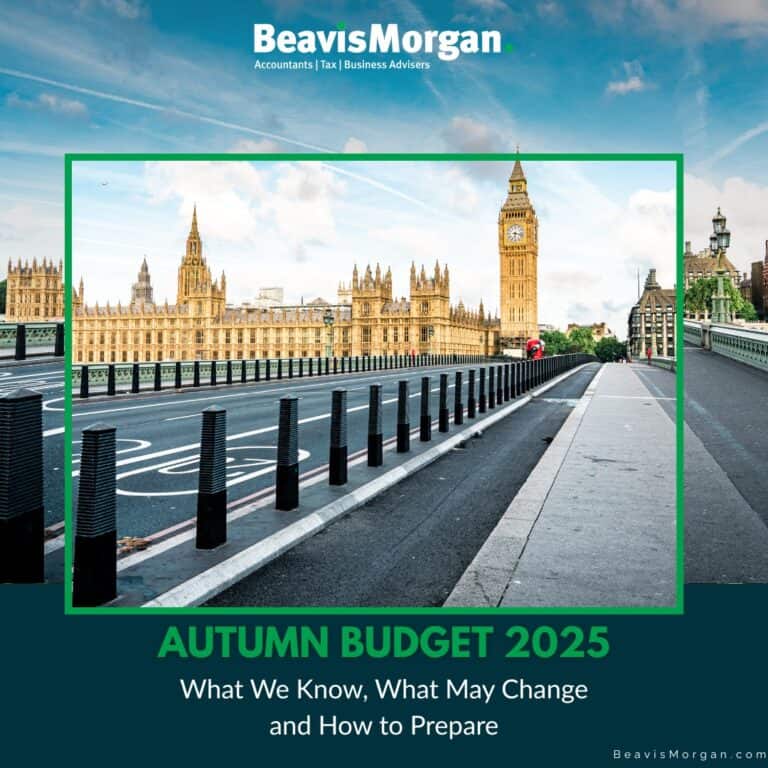With the UK Budget scheduled for Wednesday 26 November 2025, small and medium enterprises (SMEs) face a defining moment. In a climate of economic pressure, frozen allowances, and fragile confidence, the announcements made in this Budget could materially impact growth plans, cashflow strategies, and risk exposure for many businesses.
Now is the time to prepare! Below, we outline key areas SMEs should be thinking about in advance, focusing on practical steps you can take so you’re ready, no matter what direction policy takes.
- Cashflow & Working Capital Planning
SMEs often operate close to the margin, and disruptions – rising costs, interest rates, delayed receivables – can strain cashflow. In the context of a new Budget:
Stress-test your forecasts. Run scenario models: What happens if sales fall by 5–10%? What if input costs rise further?
Reassess credit terms. Review your receivables and payables cycles, and consider tightening credit to slow-paying customers or negotiating better payment terms with suppliers.
Check existing facilities. If you use overdrafts, invoice finance, or working capital lines, now is a good time to ensure they remain fit for purpose. Are the terms competitive? Are there liquidity buffers?
- Tax Reliefs & Incentives – Don’t Leave Them Behind
In tight economic conditions, fully utilising available tax reliefs and incentives can provide breathing room. Key areas to review ahead of the Budget:
- R&D tax credits – If you invest in innovation, ensure all qualifying expenditure is captured and documented.
- Capital allowances – Particularly for businesses investing in equipment or plant & machinery.
- Patent Box – For companies with patented technology or IP, this can reduce corporation tax significantly.
- Loss carry-back rules – If your business has made losses, check whether you can carry them back to earlier profitable years.
- EIS / EMI / employee incentives – If fast growth or retention of key talent is a priority, make sure your share incentives or investment structures are optimally arranged.
The Budget may tweak or reconfigure reliefs, so having a robust baseline before announcements helps you react quickly.
- Touchpoints with HMRC – Vigilance, Disclosure & Compliance
SMEs must avoid being caught off-guard by HMRC changes, increased scrutiny or penalties. Ahead of the Budget:
- Ensure VAT error correction procedures are up to date (given the withdrawal of Form VAT652).
- Run a PAYE / payroll audit to confirm correct classifications and deductions.
- Review your tax disclosures and compliance records—if HMRC issues queries, being able to show evidence and transparency is critical.
- Consider fee protection / tax investigation cover to mitigate the risk of future disputes.
What’s changing at the Budget could also affect tax rates, ceilings, or thresholds, so maintaining compliance discipline is your first line of defence.
- Capital Structure & Funding Options
Any decisions you make about capital, debt, or equity will echo over the coming years. In preparation:
- Evaluate whether your existing debt structure remains optimal. Could refinancing or renegotiation yield savings or greater flexibility?
- If you’re planning investment or acquisition, consider commercial finance solutions beyond traditional banking: asset-based lending, bridging loans, or term finance.
- Where capital markets are an option, review timing and readiness: valuations, governance, compliance, and structural alignment.
The Budget may include new lending or investment incentives, so being “deal ready” boosts your ability to act fast.
- Strategic Review & Scenario Readiness
Every SME should use this moment not just to tweak, but to test strategy:
- Revisit your business model and vulnerabilities: how reliant are you on particular clients, sectors, or suppliers?
- Set triggers and thresholds: at what point do you cut costs, delay projects, or revisit capital deployment?
- Align your internal KPI dashboard with potential risks: cashflow, margins, debt service, cost inflation.
- Prepare a short “if–then” playbook: e.g. “If interest rates rise another 1%, we pause new hires.”
- The Value of External Advice
Policy changes can be fast, sometimes opaque, and often with unintended consequences. That’s why tailored guidance is so important:
An adviser with specialist tax, corporate finance and sector experience can help you interpret announcements, integrate them with your business model, and act quickly.
They can highlight unintended cross-border, accounting or relief interactions that may impact your business differently than generic commentary suggests.
In times of volatility, that helps you make decisions you can trust – and avoid reactive mistakes.
Final Thoughts
Budget 2025 could bring both opportunity and disruption for SMEs. The difference will often be how prepared you are. By addressing cashflow, taking advantage of tax reliefs, verifying compliance, evaluating funding structure, and stress-testing strategy now, you’ll be better placed to capitalise or protect as changes unfold.
If you’d like help analysing the Budget’s impact on your business, or want support aligning your finances, tax strategy, or funding options, Beavis Morgan is here to help. Contact your usual Beavis Morgan adviser or email info@beavismorgan.com.





